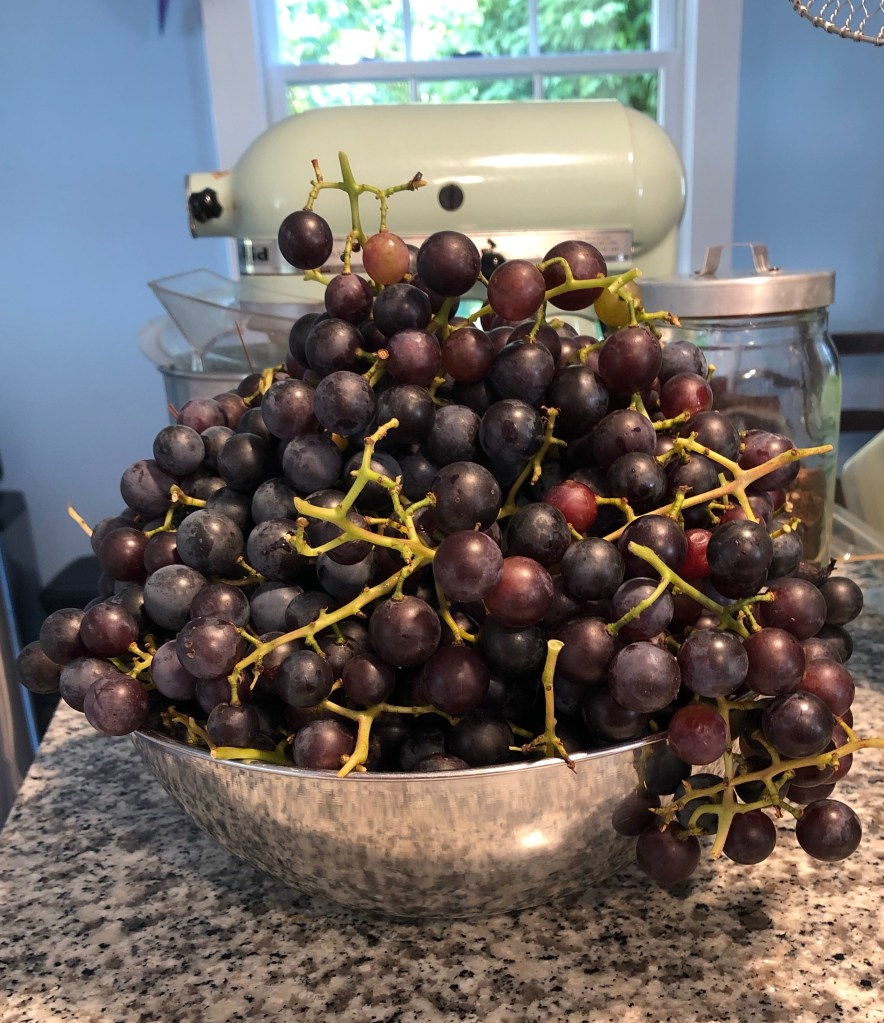
“OCTOBER”
Robert Frost — 1874-1963
O hushed October morning mild,
Thy leaves have ripened to the fall;
To-morrow’s wind, if it be wild,
Should waste them all.
The crows above the forest call;
To-morrow they may form and go.
O hushed October morning mild,
Begin the hours of this day slow,
Make the day seem to us less brief.
Hearts not averse to being beguiled,
Beguile us in the way you know;
Release one leaf at break of day;
At noon release another leaf;
One from our trees, one far away;
Retard the sun with gentle mist;
Enchant the land with amethyst.
Slow, slow!
For the grapes’ sake, if they were all,
Whose leaves already are burnt with frost,
Whose clustered fruit must else be lost—
For the grapes’ sake along the wall.
In mid-September, my wife and I moved to New Hampshire following my retirement as Rector of St. Peter’s Episcopal Church in Arlington, Virginia. We arrived shortly before the foliage began to change and the leaves began to fall.
As I watched the changing October foliage all around me, I was reminded of the poem “October” by Robert Frost. I thought of it for two reasons. First, the poem expresses a desire for the slowing of time to allow time for the appreciation of the present season and present moment. Winter in the poem is a metaphor for death and so the poet in the season when the days get shorter and shorter asks for the retarding of time and a delay in the onset of winter. This delay is also good for the grapes who will have more time to ripen on the vine before it is destroyed by frost.
The window behind our kitchen sink looks out to an old wooden fence on which grows a vine of Concord grapes. From that one vine, I have harvested 10 pounds of grapes. With the first five-pound harvest, we made delicious grape jelly. The second five-pound harvest now is in the freezer for later cooking and canning. At the second harvest, the vine was beginning to wither and brown. “For the grape’s sake,” I left them on the vine for as long as I could so that they would ripen as much as possible. At the end of October, the vine is now spent.
In the middle of the poem, the poet asks that October, “Enchant the land with amethyst.” In Greek amethyst means “not intoxicated.” The Greek myth describing the origin of the amethyst stone relates to the Greek god Dionysus (Roman, Bacchus), the god of wine and intoxication, who fell in love with the beautiful maiden Amethyst, who as her name suggests was “not intoxicated.” She rebuffed Dionysius driving him in his rage to seek to kill her. To protect Amethyst, the goddess, Artemis, changed the maiden into a clear quartz stone. As Dionysius lamented her new state, he spilled wine over her turning her into a beautiful purple stone. Grapes ripening on the vine are transformed in the fall from green berries into a wonderful purple, as rich as any amethyst.
Second, the poem speaks to me in my current situation. I have worked for over 40 years and now have decided to retire from full-time work. I don’t want to think that I am in the fall of my life with winter coming soon on its heels. I would like to think that I am in the spring of my life with new possibilities, new hopes, and new dreams to fulfill. Of course, I am not getting any younger, so I too long that the time be slowed and that in each of my remaining days I may be beguiled and filled with wonder at the beauty of life around me. Like grapes on the vine, I want to ripen and flourish before my time comes to an end. And on top of that, with its bright foliage, fall in New Hampshire is stunning — even enchanting.
From 1900 to 1911 Robert Frost lived on a Farm in Derry, New Hampshire in two-story, clapboard house on an eighteen-acre farm that had been built in 1884. Frost’s farm (now a State Park) is less than 20 miles from our new home in New Hampshire as the crow flies. Frost moved to England in 1912 only to return to the states at the end of 1914. The poem, “October” was first published in England in 1913 in the book, A Boy’s Will. I feel certain from reading it —but I don’t’ know for sure — that he must have written it while he was living in New Hampshire.
It is my hope that as you read this, in whatever time of life you find yourself, that you will take time to let your heart be beguiled by the beauty of the sunlight, the change of the seasons, and the beauty of creation all around you.

Beautiful reflection. I ponder many the same things!
LikeLike